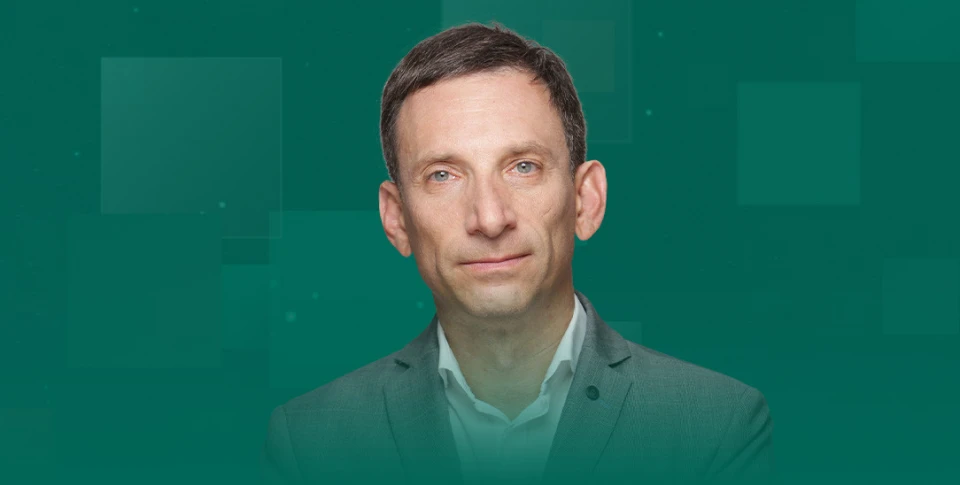
Moscow, Beijing view Turkey as part of the West, not an authoritarian ally
Turkish Foreign Minister Hakan Fidan emphasized in an interview with Hürriyet that a new situation may develop in the Russia-Ukraine war in 2025 due to the fatigue on both sides
Hakan Fidan highlighted that Turkey is preparing for this scenario because it aims to maintain friendly relations with both Russia and Ukraine, which aligns with the foreign policy strategy of President Recep Tayyip Erdoğan. "Only a friend can speak about the pain he feels in relation to the current situation; therefore, we are trying to discuss this pain with both sides," said the head of Turkish foreign affairs, stressing that neither Russia nor Ukraine wants to be perceived as the losing side in this war.
At the same time, the Turkish Foreign Minister emphasized the need for a fair resolution to the war based on the principles of Ukraine’s territorial integrity. It is well known that both President Recep Tayyip Erdoğan and other Turkish politicians have repeatedly stated the importance of territorial integrity, including Ukraine’s status over Crimea, which was annexed in 2014.
Russia, as is known, has its own views on the territorial integrity of Ukraine. After the annexation of Crimea, the Donetsk, Luhansk, Kherson, and Zaporizhzhia regions of Ukraine, Russian President Putin considers these territories to be subjects of the Russian Federation. He also believes that a condition for starting Russia-Ukraine negotiations should be the withdrawal of Ukrainian forces from the territories of Donetsk, Luhansk, Kherson, and Zaporizhzhia that are still controlled by Ukraine’s legitimate government.
The aggression against Ukraine, during which Russian forces attempt to occupy as much territory as possible, including parts of Donetsk, is presented by Russian propaganda as the liberation of the territory of a Russian subject from enemy forces. Thus, there is little hope that Moscow will agree with the idea of Ukraine’s territorial integrity as viewed by Ankara. However, it appears that the Turkish Foreign Minister holds out hope that the exhaustion from the prolonged conflict, which shows no signs of a political resolution, will compel not only Kyiv but also Moscow to make more realistic assessments of the situation next year.
The views of Western experts, by and large, coincide with the assessment of the head of Turkey’s foreign ministry. They believe that next year, the Putin regime will face real economic development challenges, which could force the Russian president to consider ending the war. However, to be honest, such predictions were made in both 2023 and 2024, and reality contradicted that approach. So, we do not know how justified it is to bet specifically on 2025 as the year when significant shifts in the war between Russia and Ukraine might occur.
It is clear that for Ankara, it is quite important for Recep Tayyip Erdoğan to be a mediator in the conflict, thereby confirming his international status. As is known, the only real agreement achieved during the major war between Russia and Ukraine was the Grain Deal, brokered by the President of Turkey and the UN Secretary-General António Guterres.
Nevertheless, this agreement has long ceased to be effective: Russia refused to participate in it, and all of Erdoğan’s initiatives to revive the deal have proven entirely unrealistic. Ahead of the BRICS summit in Kazan, Erdoğan prepared new proposals for resolving the Russia-Ukraine conflict, which were discussed by Russian President Putin himself. However, Putin's remarks indicated that he did not pay serious attention to his Turkish counterpart’s suggestions, explaining that he could not trust the Ukrainian side.
Life, therefore, teaches nothing to the President of Turkey, who cannot seem to realize that he is not a genuine partner for the Russian president and other Global South leaders, who prefer to use Erdoğan as a tool to destabilize the West, seeing the Turkish president as an important ally of the United States and other civilized nations.
Erdoğan has already suffered setbacks in his attempts to extend influence over Global South countries. Recently, China and Russia effectively disrupted the summit of the Organization of Turkic States in Ashgabat, during which Turkmenistan was supposed to join this organization, where Turkey is the leading nation. Instead, Moscow facilitated the holding of a forum in the Turkmen capital, with Russian President Putin playing the main role. Incidentally, at this forum, Putin held his first meeting with Iran’s new president, during which they confirmed the possibility of strategic partnership between their countries—something that does not align with Turkey’s ambitions to increase its influence.
Erdoğan also faced defeat at the BRICS summit in Kazan. As reported, the Turkish president expressed his country's readiness to join the authoritarian BRICS club, thus signaling that Ankara has a choice between further integration into the civilized world and alignment with regimes like those of Putin or Xi Jinping.
However, as it turned out, no one in Kazan was expecting to approve this proposal from the Turkish president. Turkey's desire to join BRICS was firmly blocked by the members of the organization, which became a genuine political humiliation for Erdoğan. Now, Hakan Fidan, in his interview with the outlet Hürriyet, comments rather cautiously on the prospects of his country's participation in BRICS, somewhat irritably mentioning that joining this club, which includes China, Russia, Brazil, and South Africa, will not be possible until these countries decide on the direction of the organization's future development.
Thus, Turkey's mediation mission is effectively blocked by the fact that, for Moscow or Beijing, Turkey — as one of NATO’s most important members — is still considered part of the West rather than the Global South or the authoritarian camp of solidarity, regardless of what Recep Tayyip Erdoğan and his allies might think about it.
About the author. Vitaly Portnikov, journalist, winner of the Shevchenko National Prize of Ukraine.
The editors don't always share the opinions expressed by the blog authors.
- News











































